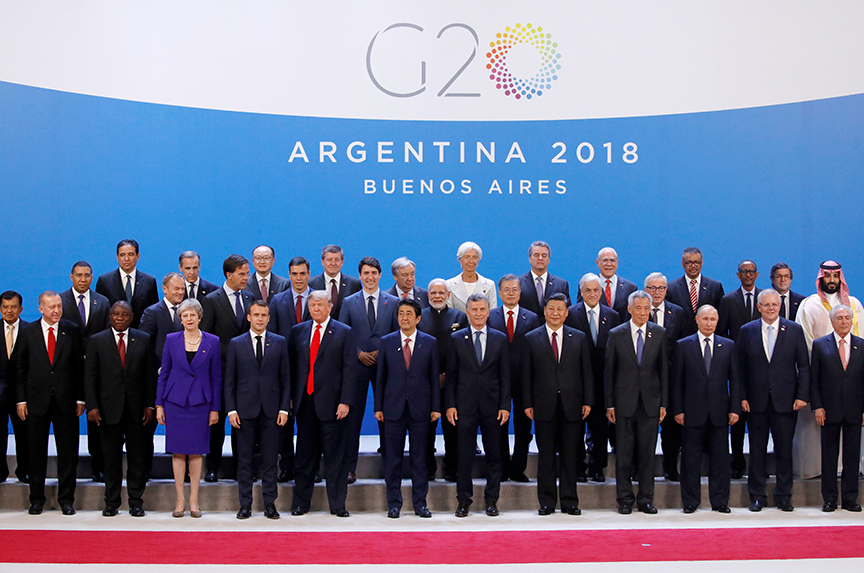Despite the rise in populism and nationalism around the world, the G20 is as relevant today as it was at its inception. While imperfect, multilateralism continues to be the most effective way to find lasting solutions to critical global challenges.
The G20’s response to the global financial crisis in 2008 is a testament to the impact members can have when they work together.
As we look at key issues on the G20 agenda, trade, climate change, migration, sustainable development, and pandemics remain transnational issues that require global solutions.
A Hot Topic: Climate Change
In 2017, the United States turned its back on its commitment to the Paris Agreement—an agreement it was instrumental in brokering—isolating itself among G20 members. This year, Argentina faces the tall task of reaffirming the G20’s commitment to the Paris Agreement, and preventing a scenario in which the 19 plus 1 language in the Hamburg Leaders Communique becomes the new normal.
Argentina and member countries will also be focused on preventing the further deterioration of the G20’s commitment, as the United States reaffirms its position and as new administrations reassess their commitments on climate.
What’s on the Menu? A Trump-Xi Meeting
A successful meeting between US President Donald J. Trump and Chinese President Xi Jinping over dinner in Buenos Aires on December 1 would be a big win not only for the United States and China, but also for Argentina’s G20 presidency, and the global economy.
If it goes poorly, we can expect a further escalation of tensions and almost certainly some retaliatory actions. Tensions will inevitably bleed into G20 discussions. Expect the United States to round up support for its pressure campaign against China.
But while most G20 countries agree with US complaints against China’s unfair trade practices, most will focus on reaffirming the G20’s support for, and commitment to modernizing, the WTO.
China has become a vocal supporter of the global trading system at a time when the United States has been willing to go at it alone and has been focusing on bilateral trade agreements and unilateral actions. Trump wields significant leverage over G20 members, given his willingness to threaten punitive tariffs to pressure countries to give on other US priorities.
Paula Garcia Tufro is deputy director of the Atlantic Council’s Adrienne Arsht Latin America Center.
Image: Leaders posed for a family photo at the G20 summit in Buenos Aires, Argentina, on November 30. (Reuters/Andres Martinez Casares/Pool)
